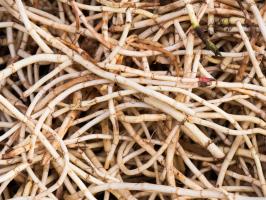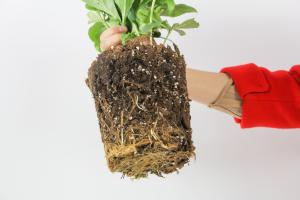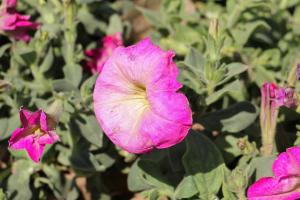Is Lichen Bad for Pot Plants?
Pot plants are a great addition to any home or garden. They provide a natural touch and fresh air, making your surroundings lively and healthy. However, like any other living organism, pot plants are susceptible to various infections and diseases. One common concern among plant owners is the presence of lichen on their pot plants. In this article, we will discuss whether lichen is bad for pot plants.
What is Lichen?
Lichen is a composite organism that thrives on the surface of various substrates, including rocks, soil, and trees. It is a symbiotic relationship involving two organisms- a fungus and an alga. The fungus provides a protective cover and absorbs moisture, while the alga provides food through photosynthesis. Lichen has a characteristic appearance, ranging from green, yellow, orange, and grey. It is a slow-growing organism that is not harmful to most plants or surfaces.
How Lichen Affects Pot Plants
Lichen might grow on the surface of pot plants, but it rarely causes harm to them. Lichen is non-parasitic and derives its nutrients from photosynthesis, which does not affect the plant's growth or development. However, if the pot plant is already weak or stressed, lichen could affect it negatively. Lichen could compete with the plant for moisture and nutrients, reducing the plant's growth rate. Additionally, Lichen could cover the leaves, reducing the amount of sunlight reaching the plant, which could affect photosynthesis. If the lichen covers the stomata, it could decrease gas exchange, a vital process for the plant's respiration and survival.
Preventing Lichen on Pot Plants
While lichen is not harmful to pot plants in most cases, it might be unsightly and affect the plant's appearance. Additionally, lichen could be an indicator of poor plant health, and its presence might signify an underlying issue. Here are some tips to prevent lichen from growing on your pot plants:
Ensure the pot plant is in good health- healthy plants are less likely to be affected by lichen, so it is best to ensure your pot plants are getting the necessary nutrients and water.
Ensure adequate airflow- lichen thrives in damp and stagnant environments, so it is best to ensure proper drainage and airflow around the pot plants.
Clean the pot plant regularly- regularly cleaning the pot plant's leaves and stems will minimize the chances of lichen growing on them.
Use fungicides- if you notice signs of lichen growth on your pot plants, you could use a fungicide to reduce the growth rate and prevent further spread. However, always read the fungicide's instructions and use as directed to prevent damaging the plant.
Conclusion
Lichen is not harmful to most pot plants but could indicate underlying plant health issues or affect weak or stressed plants. Preventing lichen growth on your pot plants is essential, and regular plant maintenance is the best way to achieve this. Always remember to use fungicides as directed and seek professional help if you notice signs of plant damage or distress.

 how many times do yo...
how many times do yo... how many planted tre...
how many planted tre... how many pine trees ...
how many pine trees ... how many pecan trees...
how many pecan trees... how many plants comp...
how many plants comp... how many plants can ...
how many plants can ... how many plants and ...
how many plants and ... how many pepper plan...
how many pepper plan...

































